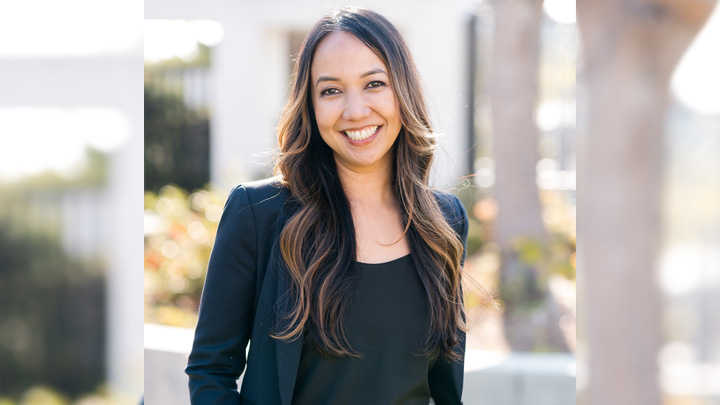Agent of change: STE lecturer powers school district success story

Equity and social justice aren’t just ideals for Amy Fulinara — they are the driving force behind her mission to create transformational change in the lives of students and the communities they call home.
Fulinara works as both a lecturer at San Diego State University’s School of Teacher Education and as Executive Director of Educational Services for the Lemon Grove School District. In October, her district was honored with the California School Boards Association Golden Bell Award for advancing equitable student outcomes. The distinction is one of the many positive results of a campaign that Fulinara led to implement an asset-based framework in their schools.
“That’s what I aim to do,” said Fulinara, “to create systems and tools that allow people to try something new.”
The system, which Fulinara attributes much of Lemon Grove’s success to, is a reference to work by nationally renowned educator and author Gholdy Muhammad, with whom she worked in collaboration. It is called the “Culturally and Historically Responsive Teaching (CHRT) framework,” which has transformed how teaching and learning center student identity, skills, intellect, criticality and joy.
Fulinara says that since becoming an early adopter of the framework, Lemon Grove schools have been able to better elevate their students of all grade levels in a beautiful and positive way.
They do this by establishing real-world connections in their curriculum, which enables higher-level thinking. When students engage with this criticality, Fulinara says they name the injustice, the hurt and the harm in the world, but they can also interrogate and grapple with it.
“We were especially drawn to her asset-based approach because it reminded us that the change our students needed had to begin with us,” Fulinara said. “Students have so much to give, but there has been so much systemic reform that was needed, and the framework allowed us to tackle everything that was going around, system-wise, and tap into the genius that our students had.”
Fulinara said it was important to publicly send a clear message that Lemon Grove is a district that believes in student diversity, and it is their duty to see these efforts to fruition.
“It just really affirms and cements the idea that when you put students’ identities at the center of our work, learning does happen,” Fulinara said. “It does not have to be just skill-based, where it’s rote memorization. If you allow them to see themselves in the curriculum, the gains and learning will come with it.”
It is the job and responsibility of educators to give that space and help students flourish. Too often, Fulinara says, there is a tendency in education to view students through a deficit lens.
“You’re thinking about students who are not proficient, you are thinking of students who are struggling readers, you are thinking about tier three, all the red and all the data,” Fulinara said. “But that is one aspect of a student's story and by no means their entire story.”
Fulinara has brought this philosophy to courses at SDSU, as well. As the instructor for TE 405W-Writing in Educational Settings and TE 914D-Instructional Methods for English Language Arts, she curates her lesson plans at SDSU to integrate the framework in order to develop more well-rounded educators.
“If we really want to create the next generation of teachers, we have to start adopting the framework earlier, and it’s been so fulfilling,” Fulinara said. “We are really trying to create the next generation of careers and citizens of the world, and to be able to question and debate and look inward as well as outward.”

